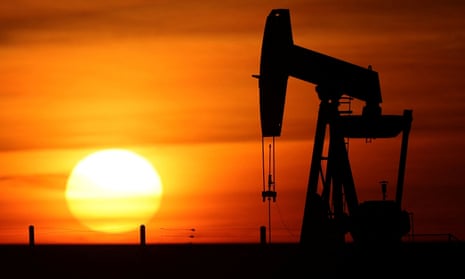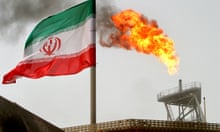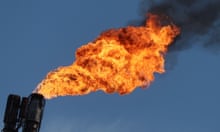Global demand for oil this year is on track to rise to a record 101.9m barrels per day as China leads an economic surge among developing nations, the world’s leading energy body has forecast.
The International Energy Agency’s predicted daily average for 2023 is 2m bpd higher than last year’s figure.
The price of a barrel of oil rose from $85.62 (£68.44) to $86.10 on Friday morning after the IEA’s report was published.
The agency warned that a recent decision by the world’s biggest oil exporters to cut their production could drive oil prices higher, in a blow to efforts to reduce inflation and reset economic growth in developed countries. “This augurs badly for the economic recovery and growth,” the IEA said. “Consumers confronted by inflated prices for basic necessities will now have to spread their budgets even more thinly.”
after newsletter promotion
Oil market prices soared by $7 a barrel earlier this month after Opec, led by Saudi Arabia, and other allied oil-producing nations, led by Russia, agreed to deepen their production cuts to 2m bpd this year despite concerns that China’s economic rebound could drive higher demand.
The move has angered western leaders because higher oil prices would make it harder for major economies to return to growth, and would provide extra revenues for the Kremlin as its war against Ukraine continues.
The expected increase in global oil demand has also dashed hopes among climate campaigners that the Covid-19 pandemic had hastened the end of the world’s rising oil demand. In 2020 energy economists, including those working at the oil company BP, predicted that demand for oil would never fully recover from the impact of the coronavirus pandemic, and could begin falling in absolute terms for the first time in modern history.
At the time, the BP chief executive, Bernard Looney, said he was “more convinced than ever” BP must embrace a low-carbon future. The company set out a target to reduce its oil and gas production by 40% by 2030. However, Looney this year backtracked on the pledge, saying BP expects a 25% reduction.









